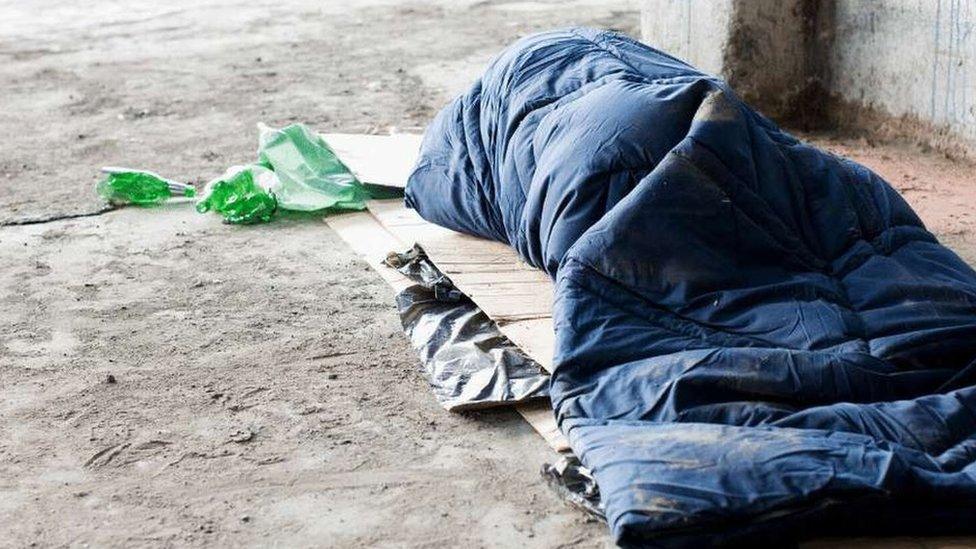'More deaths' warning if rough sleeping hub closes
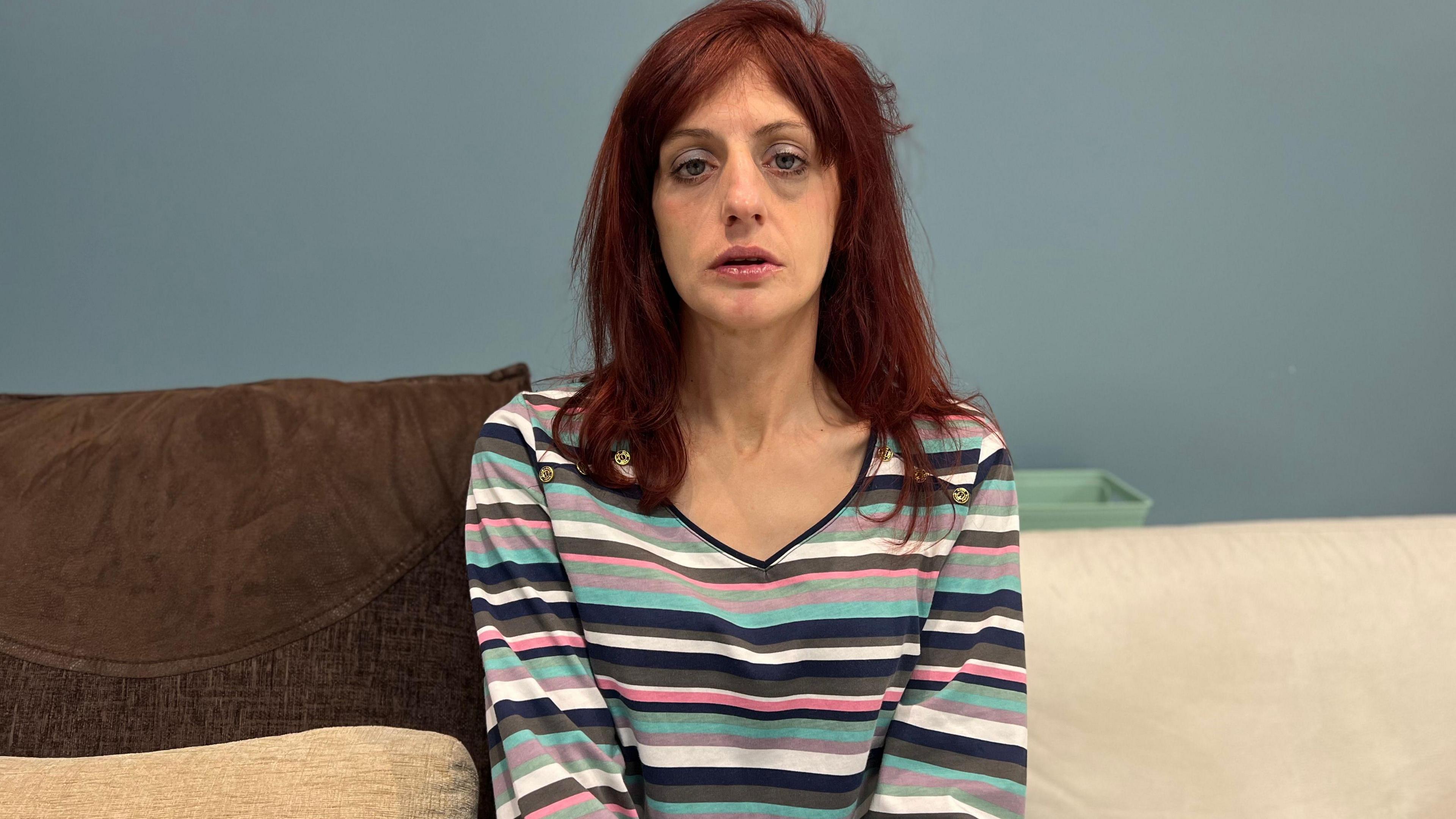
Louise Tye has experienced drug addiction for most of her life and credits Safe Space with saving her life
- Published
There are fears there will be a rise in deaths on Derby's streets amongst vulnerable rough sleepers if a key emergency accommodation service cannot afford to stay open.
Safe Space, run by Derby City Mission, offers several beds, a foodbank, communal areas and access to dental and GP checks for those experiencing homelessness and addiction.
A recent city council report says the service has reduced mortality rates among Derby's street community by 80% since it began in 2019.
But funding for the service, which comes from a partnership between local authorities and central government, will face a steep drop when the government stops its portion in March 2025.
Louise Tye weighed just 6st (38kg) when she first sought help after battling a 25-year drug addiction.
The 42-year-old admits she was in "a bad way" as she entered the doors of the emergency accommodation service.
"No one's been able to help me throughout the years - they've tried," said Louise, who was addicted to heroin and crack cocaine.
"I've started to love myself because of these people....without this, we're just going to go backwards."
She credits Safe Space and one of its support workers, 22-year-old Lewis Davenport, with saving her life.
He says the service gives people like Louise a chance.
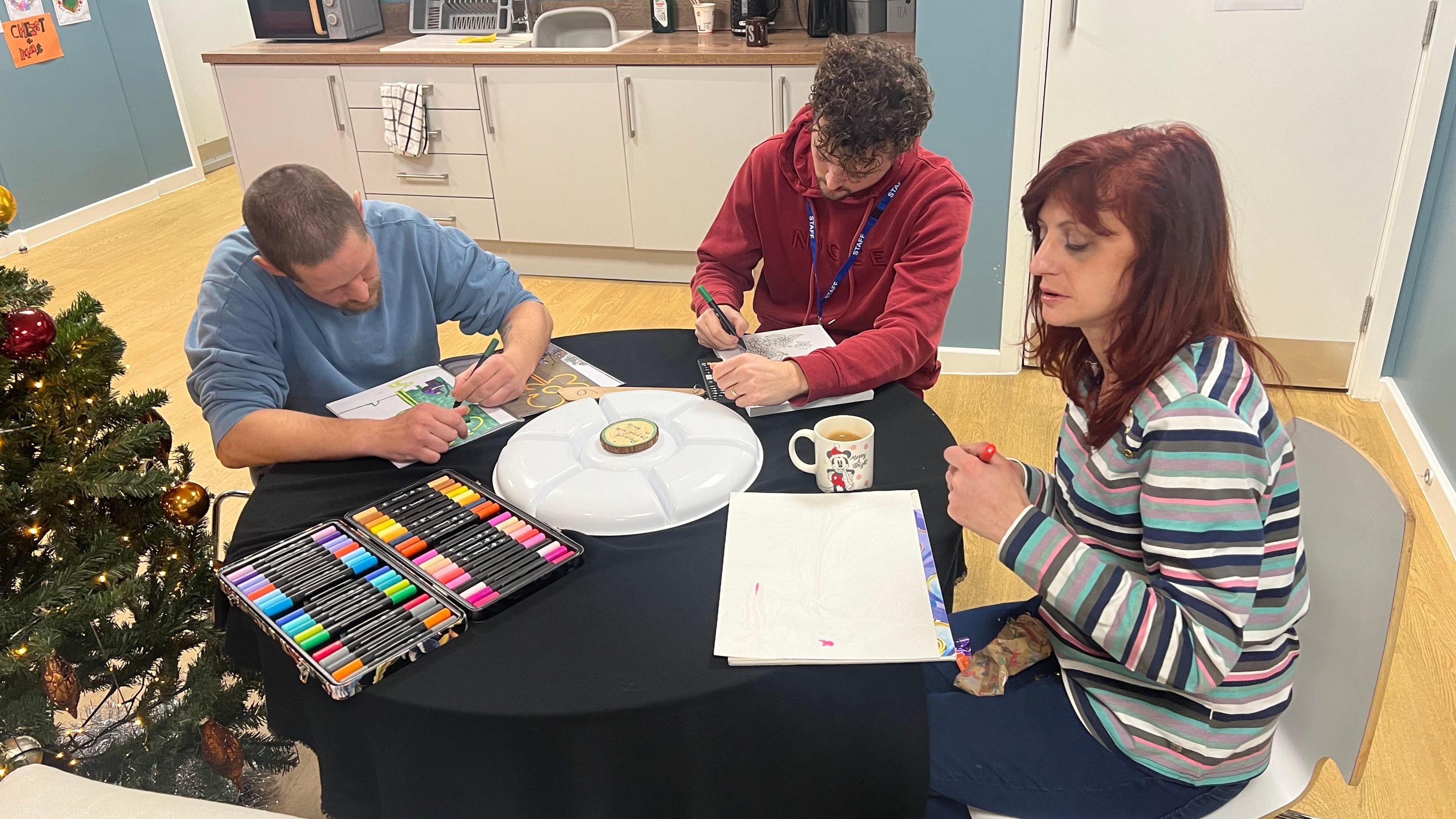
Louise with her support worker Lewis (centre) and Greg (left), who also occupies a room at the hub
The original contract for Safe Space saw £100,000 each coming from Derby Homes and the local police and crime commissioner, and £125,000 from the government - with Derby City Mission making up any shortfall.
With the service now running at a deficit of just under £300,000, it may need to close its doors if no-one else steps in to fill the gap formed by the government's withdrawal and rising costs, to the tune of several hundred thousand pounds.
The city council's report says that will mean more deaths.
Two separate reviews have found that without Safe Space, Derby and its public services "would experience an immediate and significant additional draw on respective resources, and health inequalities and mortality rates would rise again after a period of notable improvement".
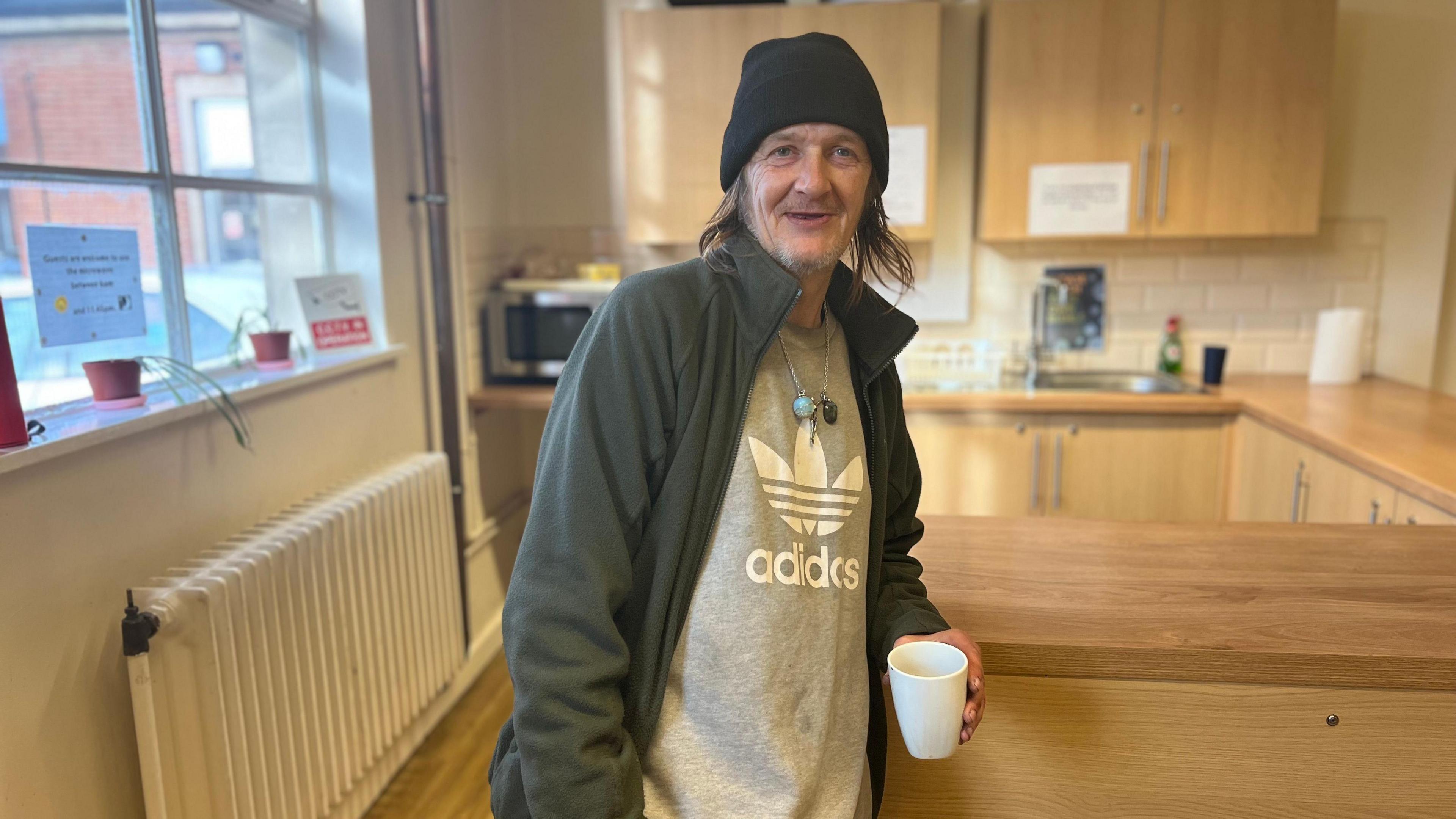
Dean Purdy said there was "no help" for the city's rough sleepers and drug addicts before the service appeared
Dean Purdy a recovering drug addict who was sleeping on the streets of Derby just a couple of months ago, says there was "no help" before it appeared.
"Basically all the addicts were left to run round town, anti-social behaviour, you can only begin to imagine. There was lots of problems with substances," he said.
"I came from the prison system, bit of a broken family...for two or three years I became a real problem in this town.
"I honestly think I would be dead if it wasn't for this place. Without this place, we're stuck."
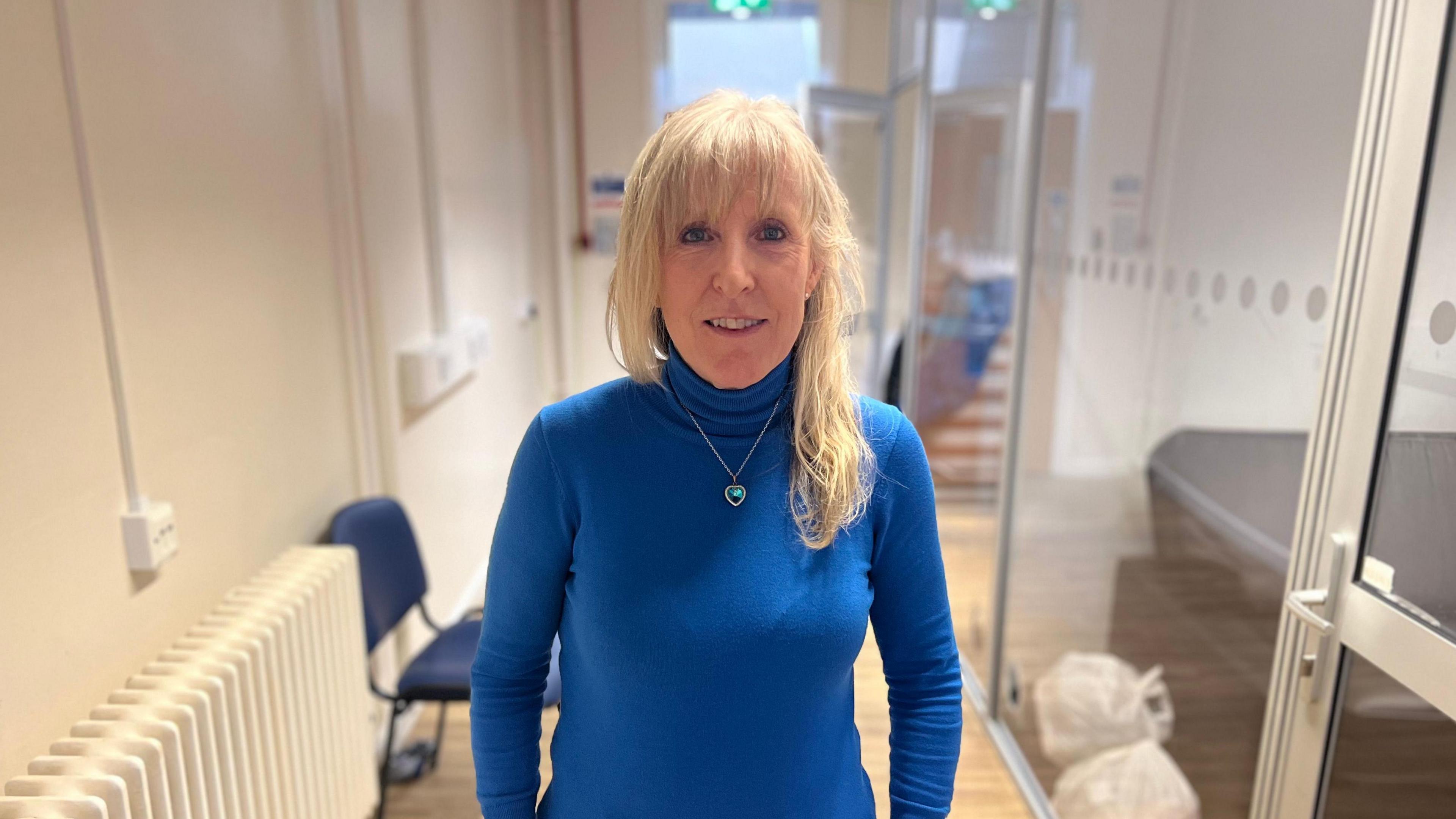
Grace Palmer from Derbyshire Police says the service has taken pressure off stretched police and health services in the area
Grace Palmer is Derbyshire Police's homelessness coordinator, the link between the police and the rough sleeping community in the city.
She says the service is vital for taking pressure off the already stretched local public services.
"I don't know many cities that have got a facility like this," she said.
"Everything that comes through here, if this space wasn't here, would need to be dealt with by other people - police, ambulance, A&E.
"The anti-social behaviour, calls to police, calls to ambulance have reduced from the cohort the Safe Space help and support."

Dan Land (left), who runs the service, says many who use it have nowhere else to go
Dan Land, who manages the service, says it is the only facility in the city offering vulnerable people on the streets accommodation and access to services.
"We see 500 different homeless people come through us each year. Overnight we sleep around 200 different people throughout the year.
"We're working with people who are at high risk of death, they are categorised as high risk of death.
"If we were not here, I would not even like to think how many more [deaths] there might be."
A spokesperson for Derby City Council said it was working to identify "other stakeholders in the city" to commit to maintaining the service.
A government spokesperson said: "This government has inherited devastating levels of rough sleeping, and we are taking action to get back on track to end homelessness for good."
Get in touch
Tell us which stories we should cover in Derby
Follow BBC Derby on Facebook, external, on X, external, or on Instagram, external. Send your story ideas to eastmidsnews@bbc.co.uk, external or via WhatsApp, external on 0808 100 2210.
Related topics
- Published24 October 2024
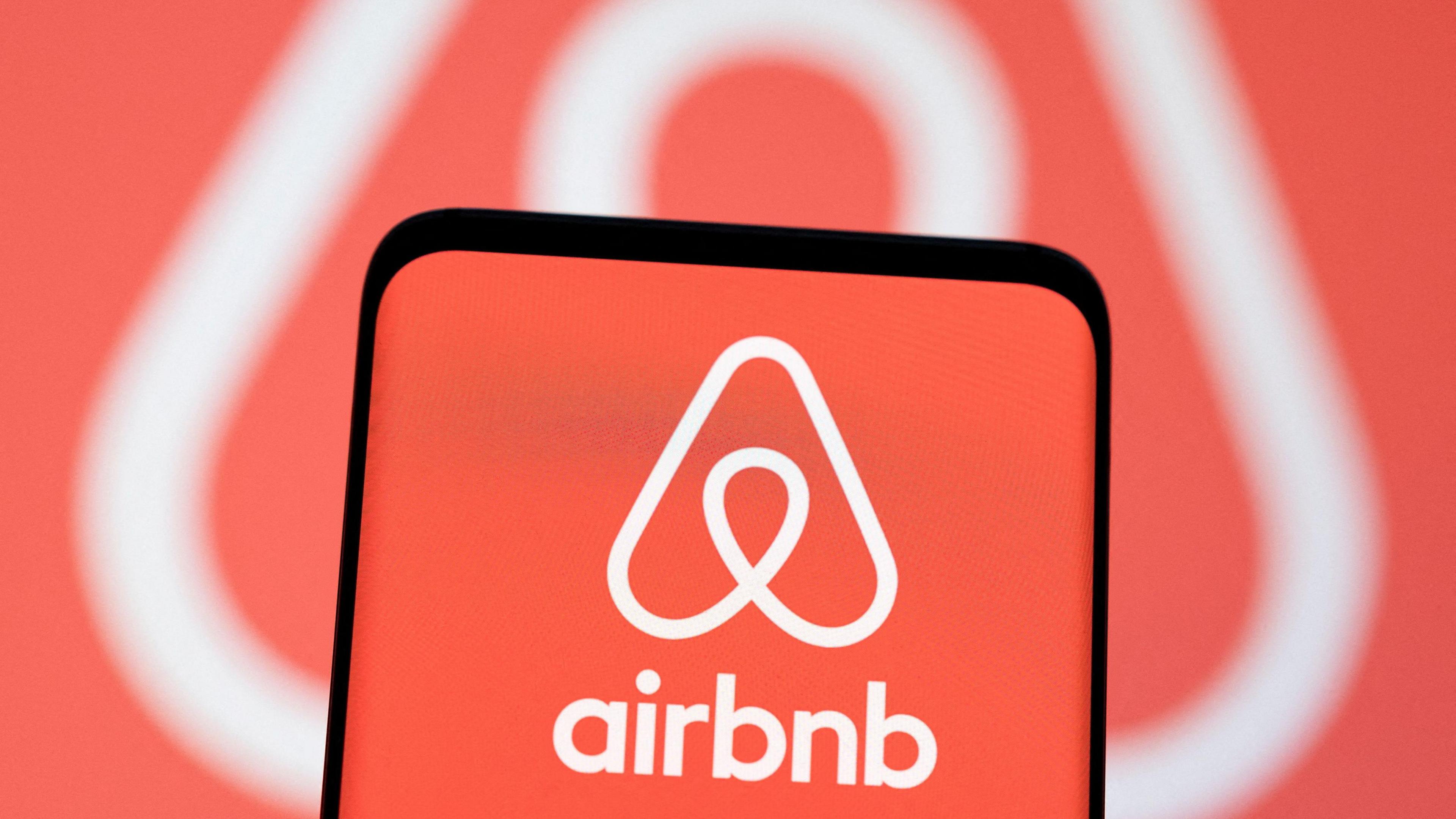
- Published9 February 2024
